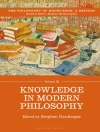Most states are multination states, and most peoples are stateless peoples. Just as collectives can behave as sovereign states only if they are recognized by the international community, liberal multination states must recognize stateless peoples in order to determine their political status within that state. There is, however, no agreement on the kind of principles that should be considered, especially under classical liberalism, which gives individuals preeminence over groups. Liberal theories that attempt to accommodate collective rights are often based on a comprehensive version of liberalism that subscribes to moral individualism. Within such a framework, they develop a watered-down concept of collective rights. In A Liberal Theory of Collective Rights Michel Seymour explores the theoretical resources of John Rawls’s political liberalism and shows that this particular approach can accommodate genuine collective rights. By Rawls’s account, Seymour explains, peoples are moral agents and sources of valid moral claims and are therefore entitled to collective rights. These kinds of rights translate, in the constitution of the multination state, to a true political recognition for stateless peoples. Ultimately, A Liberal Theory of Collective Rights answers three important questions: Who is the subject of collective rights? What is the object of collective rights? And can they be institutionalized in real politics?
Michel Seymour
Liberal Theory of Collective Rights [PDF ebook]
Liberal Theory of Collective Rights [PDF ebook]
Cumpărați această carte electronică și primiți încă 1 GRATUIT!
Limba Engleză ● Format PDF ● ISBN 9780773552487 ● Editura McGill-Queen’s University Press ● Publicat 2017 ● Descărcabil 3 ori ● Valută EUR ● ID 8871699 ● Protecție împotriva copiilor Adobe DRM
Necesită un cititor de ebook capabil de DRM












